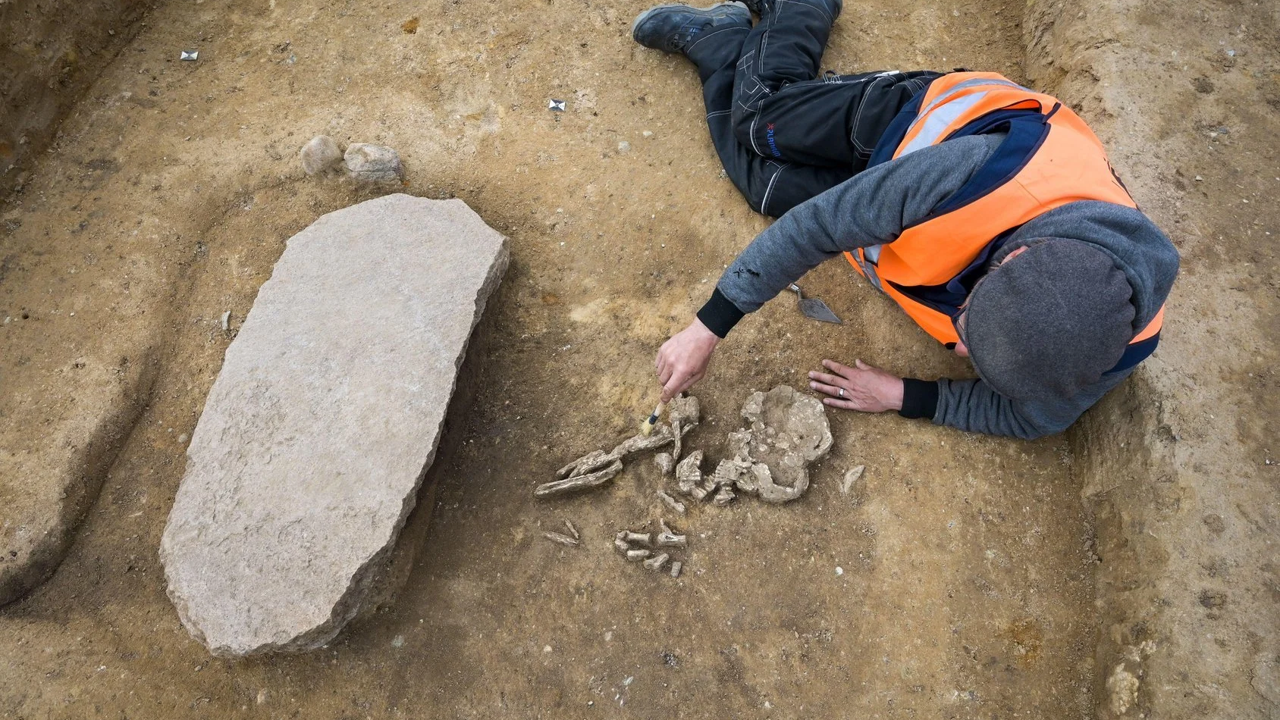4,200-year-old 'zombie' grave discovered in Germany
A recent archaeological dig in Germany uncovers a Bronze Age burial site, complete with measures intended to prevent the deceased from returning as a revenant

Archaeologists in Germany have unearthed a grave dating back to the Bronze Age, around 4,200 years ago, which provides compelling evidence of ancient beliefs in revenants, or "zombies" as they are popularly known.
The excavation was conducted ahead of the construction of a power line project and revealed the skeleton of a middle-aged man, believed to have been between 40 and 60 years old at the time of death. His burial was notably marked by a large stone slab placed over his legs, suggesting measures were taken to prevent him from rising from the grave.
The State Office sponsored the dig for Monument Preservation and Archaeology of Saxony-Anhalt, which aims to ensure that archaeological treasures are preserved amid infrastructure developments.
Explaining the significance of such findings, the project manager, Susanne Friederich, said, "Discoveries like these offer rare insights into the mythological and cultural narratives of early European societies, particularly their beliefs related to death and the afterlife."
Significance of revenant legends
Revenant legends, common across various ancient and medieval cultures, describe revenants as animated corpses that return from the dead to haunt the living. Such myths are prevalent in Old Irish Celtic, Norse mythology, and many European traditions.
In these stories, revenants are often depicted as those who had unresolved issues or were evil in life, like witches or suicide victims. The practice of placing heavy stones or blocks over graves, as seen in the Oppin site, was a widely adopted method to prevent the dead from returning.
This particular burial aligns with the Bell Beaker culture, which spanned across Western Europe to parts of Africa and was known for its distinctive pottery. The Bell Beaker people, emerging around 2800 B.C., left no written records, making archaeological finds crucial for understanding their customs and beliefs.
The inclusion of grave goods in their burials suggests a belief in life after death, which might have included precautions against revenant manifestations.
Zombie legends in ancient cultures
The fear of revenants is not unique to the Bell Beaker culture. Similar practices have been observed in Ancient Greece, where bodies were weighed down, and in Roman times, where the dead were occasionally dismembered to prevent their return.
The medieval period, particularly in Eastern Europe, saw a resurgence of revenant hysteria, with various protective burial practices emerging, such as nailing down corpses or placing bricks in their mouths.
David Soren, an anthropology professor at the University of Arizona, noted the extensive history of revenant fears, "From ancient Roman children with blocks in their jaws to 17th-century Polish vampire burials, these practices reflect a deep-seated fear of the dead among European peoples."
As the SuedOstLink project continues, archaeologists expect to uncover more graves, which may provide additional insights into the extent of revenant beliefs among the Bell Beaker and subsequent cultures.
Source: Newsroom






